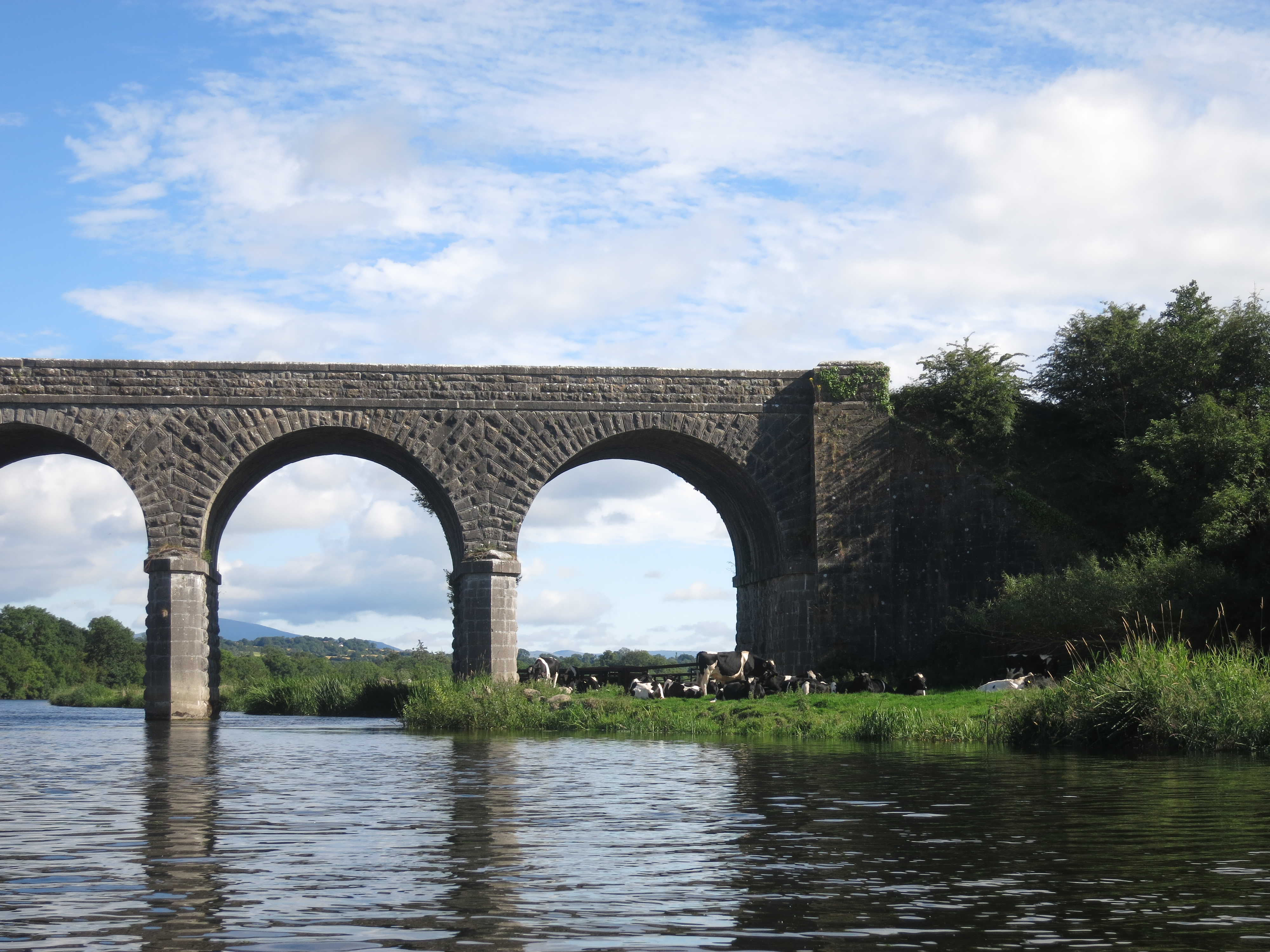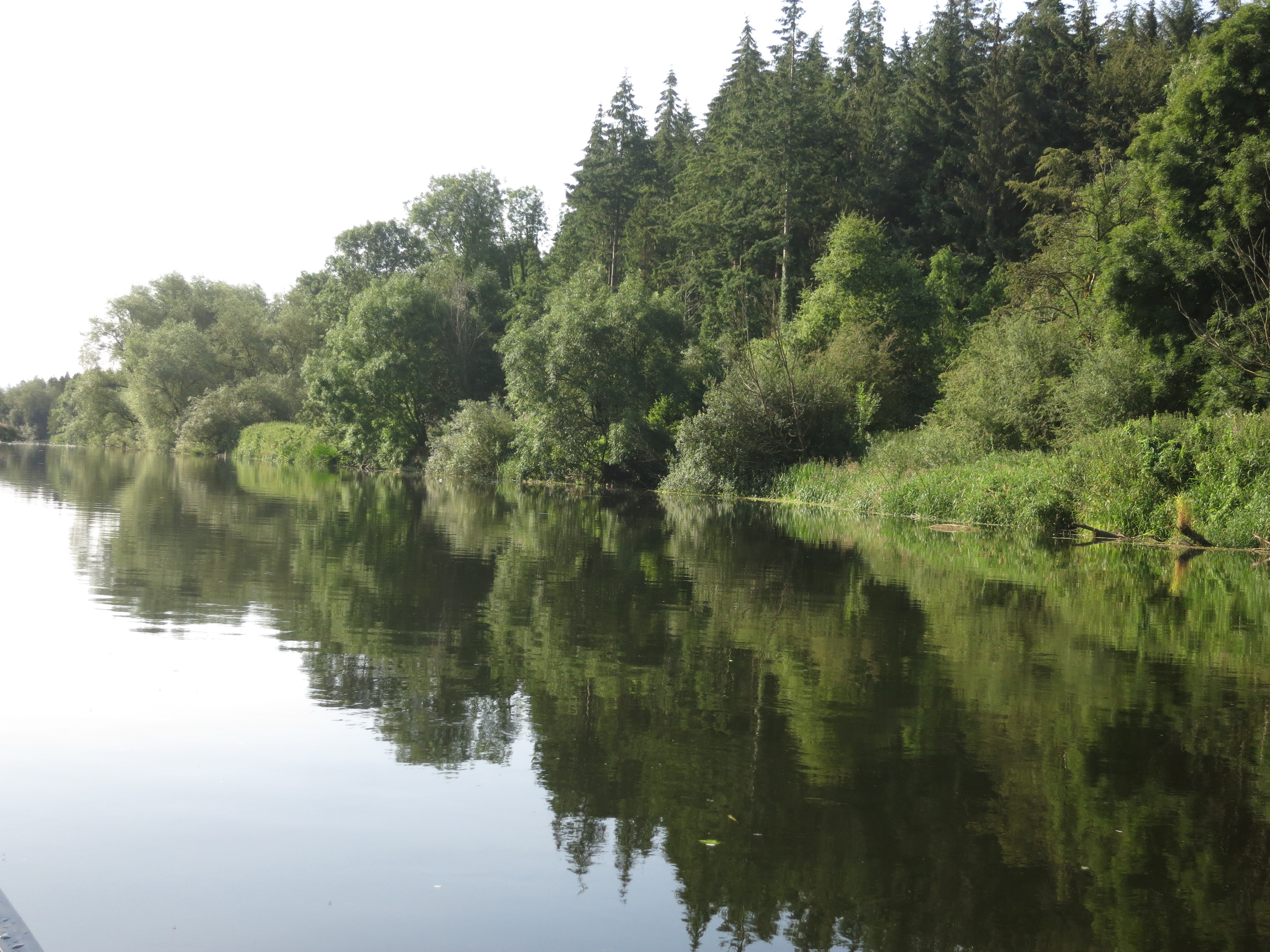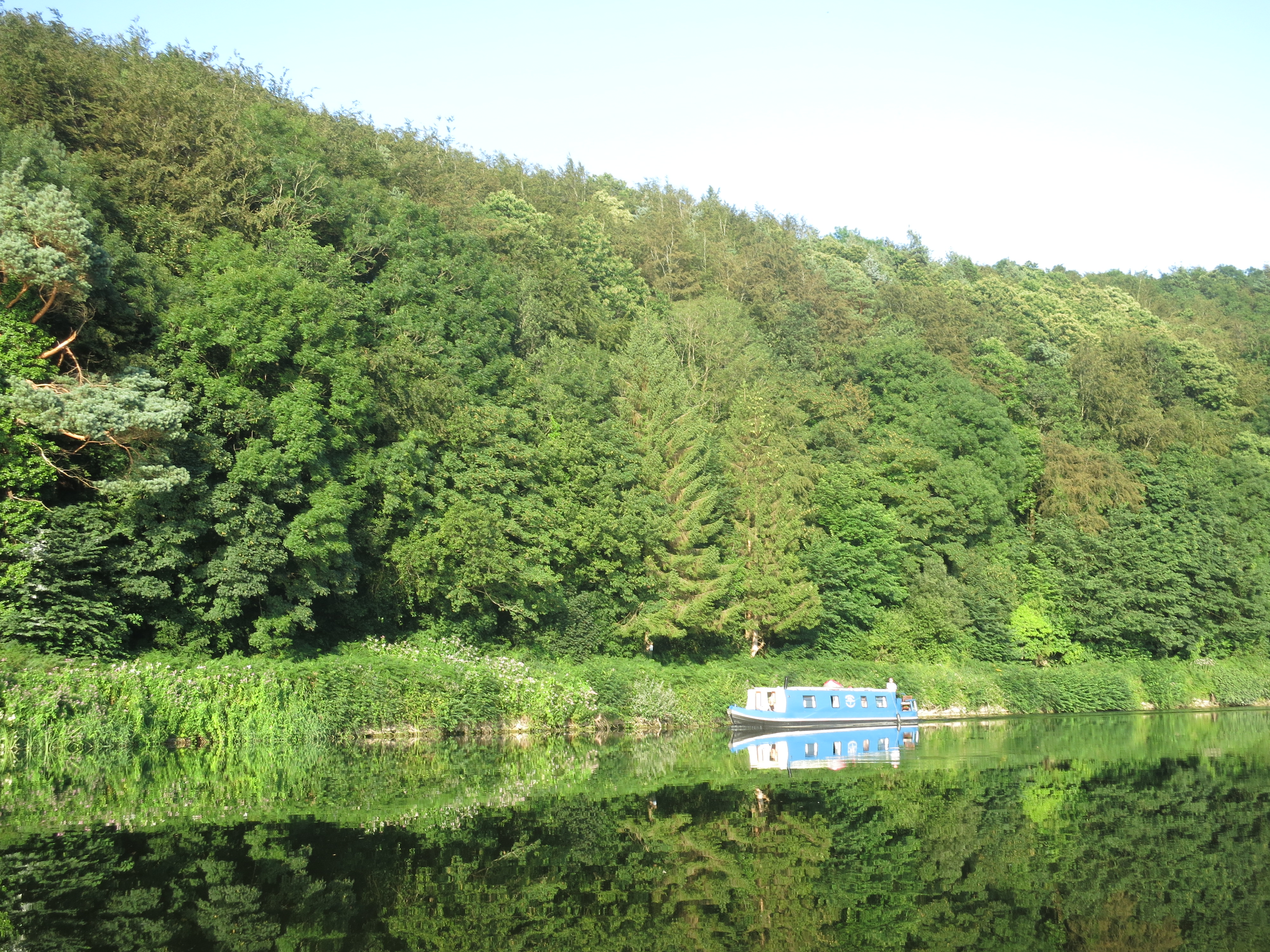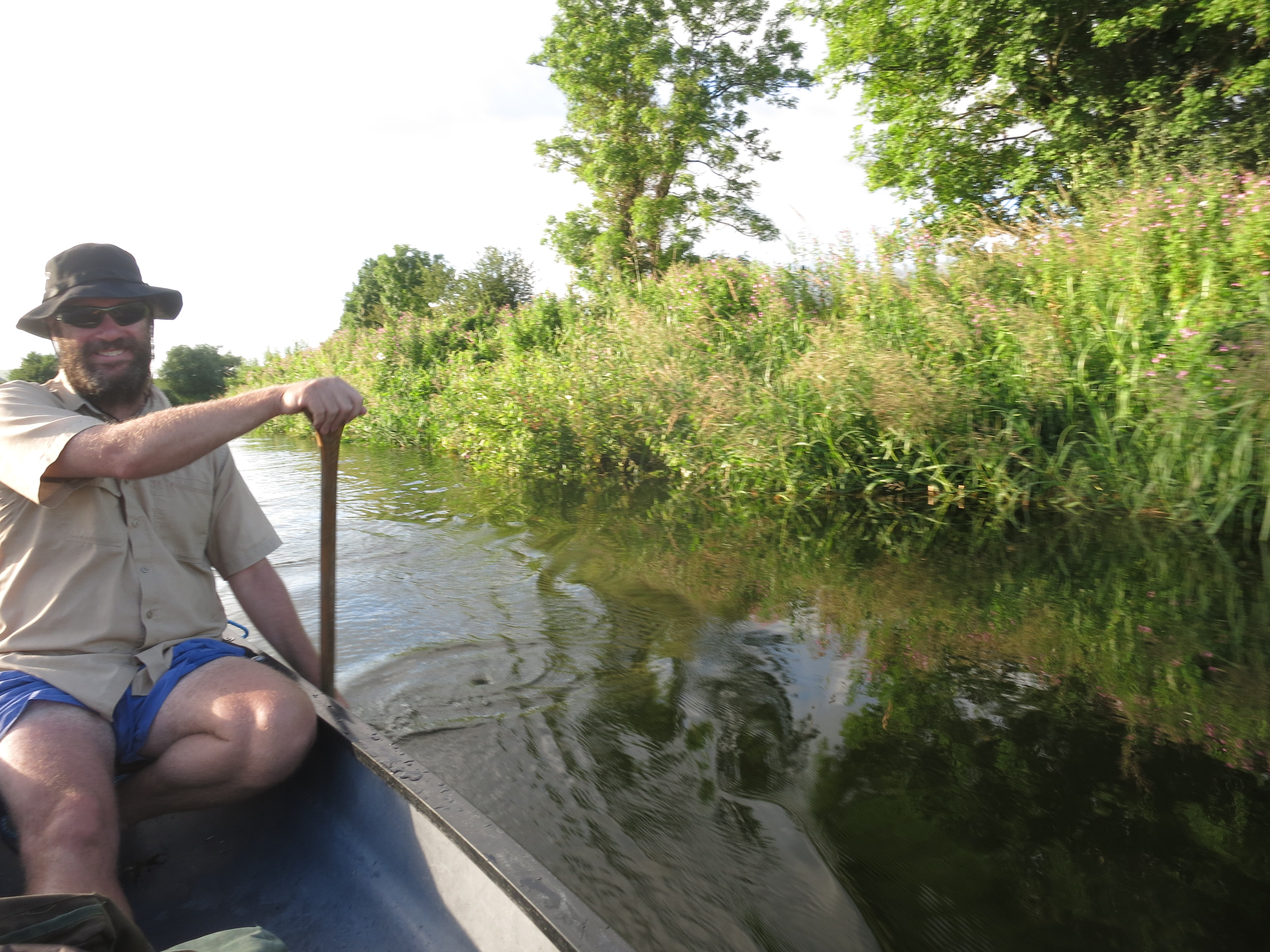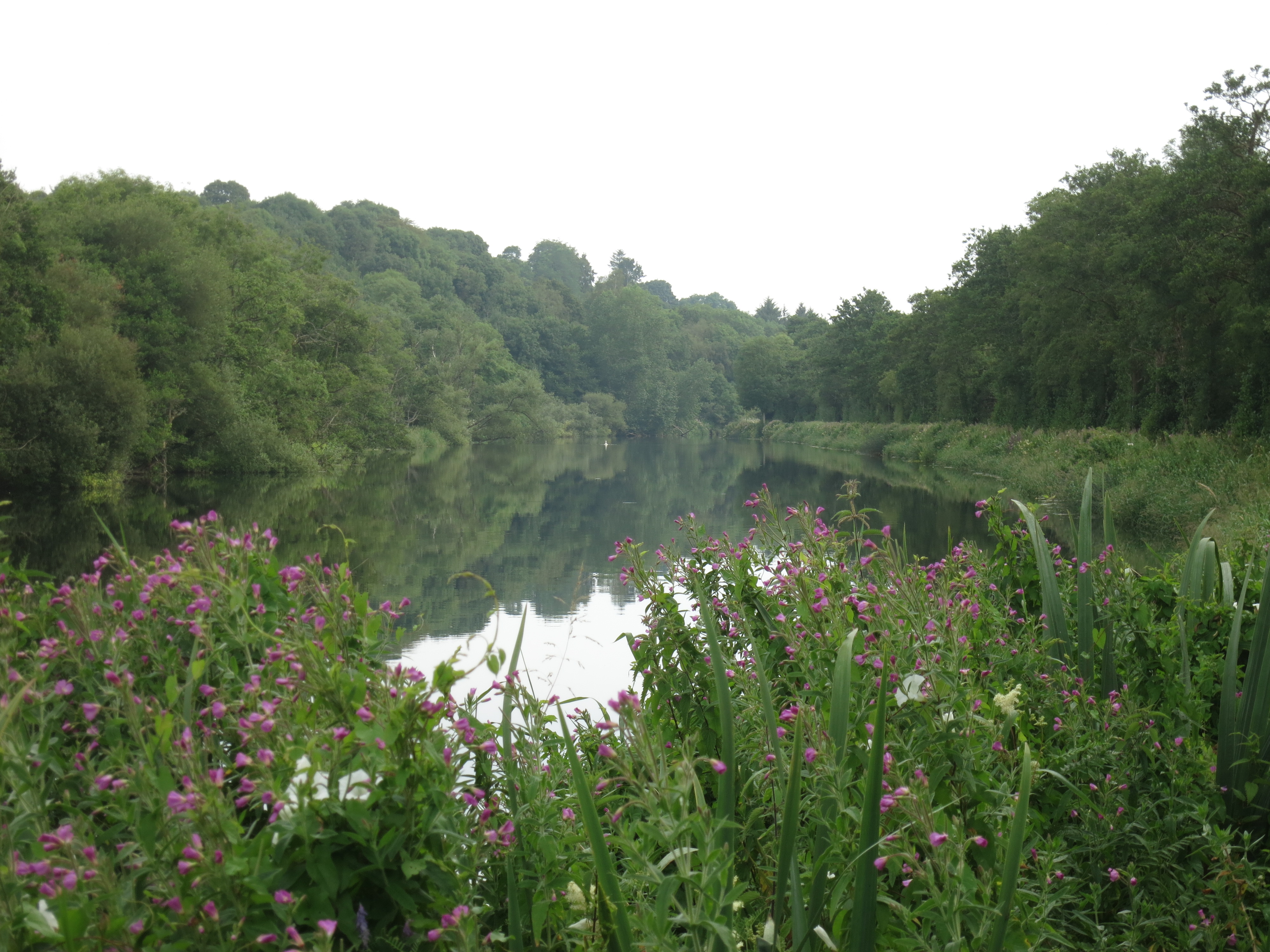
After a week lounging around at Niamh's family home in Leixlip, on the outskirts of Dublin, we headed off for Carlow town, to paddle down the Barrow river to New Ross.
Carlow (or Carla as the locals told us it should be pronounced) is a small town about 100km south of Dublin, where Niamh spent two years studying, though we didn't have time to look around, going straight to the meeting-point that had been arranged by the canoe-hire company. We unloaded, made our gear waterproof, bade farewell to Niamh's parents, who'd dropped us down and set off.
The first obstacle was the weir, which officially we weren't meant to go down, but unofficially we were told we could, but 'I didn't say that'. To make the river navigable for barges and other larger craft, the river is dammed up every few kms with weirs, beside which are locks to enable larger craft to change between water levels. Within a few hundred metres we'd got to the first lock, but hadn't been given a lock key, so were faced with the prospect, as the river was low, of hauling our gear and canoe up a two metre high dock then along a hundred metre path and down again another few metres. So, we had a look at the weir, got out and slid the canoe down – nothing for a veteran of Katherine gorges many rocky crossings! Here it was smooth and downhill as opposed to rocky, uneven, mostly flat and peppered with large boulders and deep holes.
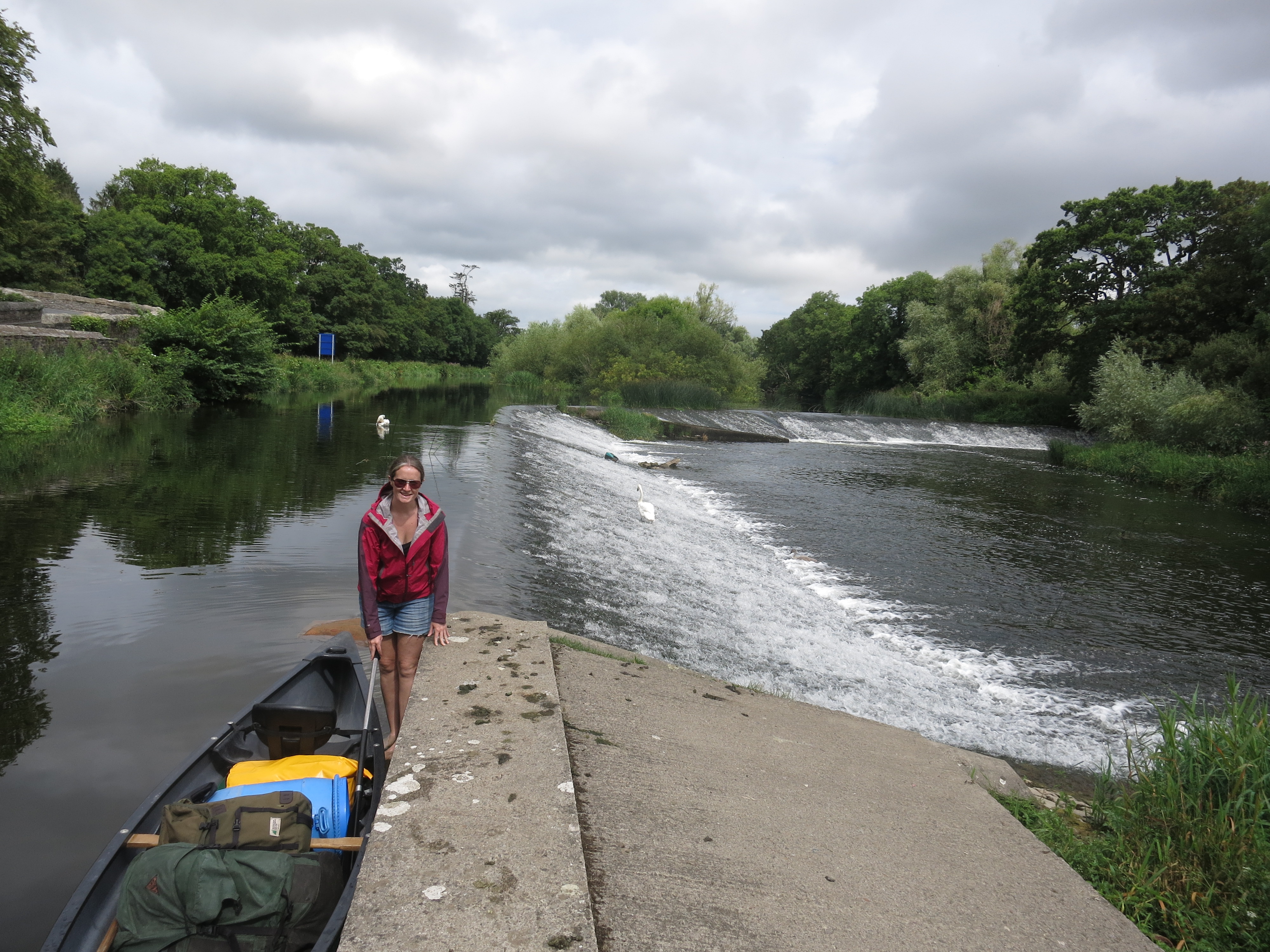
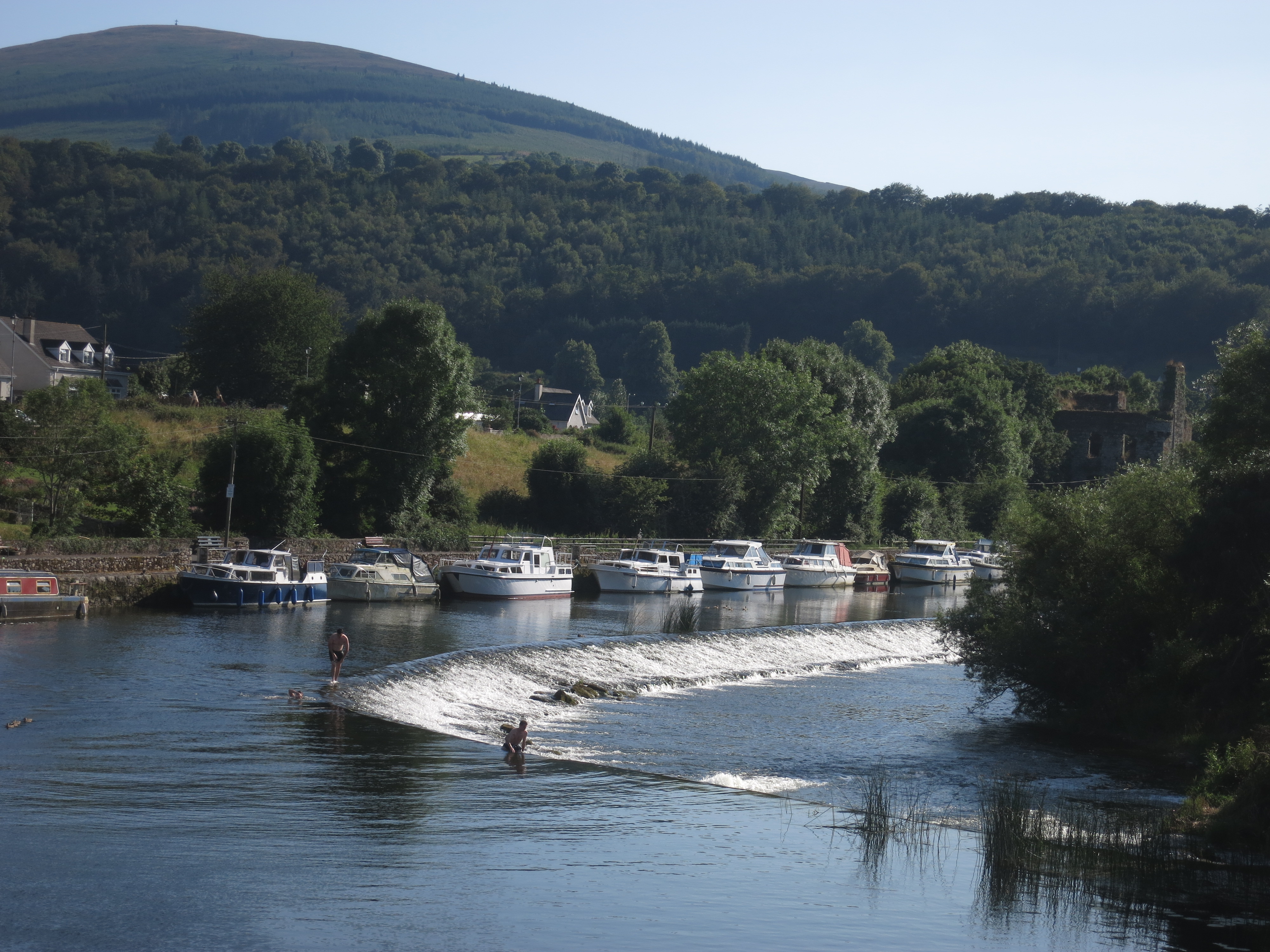
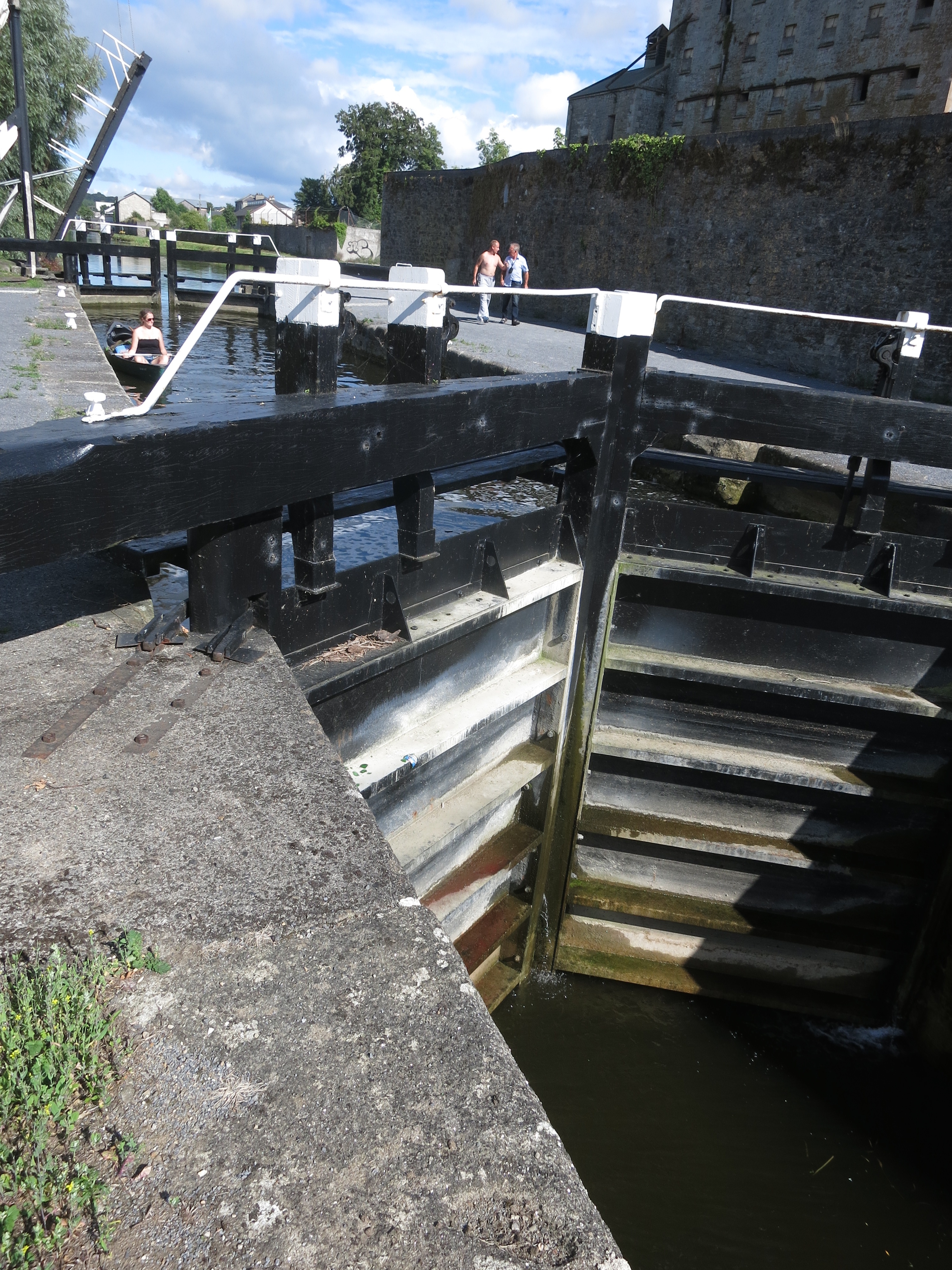 Niamh waiting at the lock near Bagenalstown. The fella with his top off is the one who gave us a lock key.
Niamh waiting at the lock near Bagenalstown. The fella with his top off is the one who gave us a lock key.
It was lovely to be out paddling again, particularly knowing we'd be going for a few days, camping along the river. For the first day we paddled mostly through farmland, the riversides covered in wildflowers and trees, watching the soft countryside pass by. The water was surprisingly clear – crystal clear in fact. There were small fry and fingerlings swimming around, but I rarely caught sight of much bigger, but there were occasional fishers, so there must have been some life underwater; above the water however, there was a fair bit of life, in particular many swans, in pairs or alone, often with cygnets in tow, fluffy and gawky. There were also lots of grey cranes, the usual birds you'd expect like crows and such, and sometimes kingfishers, a brilliant blue, elusively flitting ahead from bush to bush next to the water.
Next to us, behind trees, we could hear roads sometimes; other times it was the sounds of cattle, birds singing or just the gentle splash of our paddles in the water. Now and then we'd pass under a bridge or past a small village.
We had lunch with Niamh's parents who'd made a day of it and had driven down to meet us; everyone was commenting on how lovely the weather was and I still wasn't sure if they were joking. Niamh had told me that an Irish summer rarely tops 25C, but for an Australian, particularly one who's been living a while in the North, it's hard to really grasp. The weather since I'd got to Ireland had been cool, cloudy and a bit rainy, with the odd bit of clear sky and warm afternoon, yet everyone kept saying how very lucky I'd been with the weather! The late morning had turned cloudy and we'd paddle for a while in rain and drizzle and when I commented to the barman that paddling had been nice until the cold change he looked incredulously at me and said Cold?! We're roasting!, a turn of phrase which I've heard a lot and still (mostly) check an urge to contradict! In fairness though, for the rest of the canoe trip the weather was glorious, mid-high 20s and blue skies and mild evenings.
Lunch was in a large hotel on the river; we ate in the original old pub, onto which had been tacked a slightly tacky, faux-lux hotel. Irish pubs are lovely and very different from the soulless beer barns known as Irish pubs all over the world (that includes at least two in Vladivostok for instance!); they're usually small by Australian standards, cosy, dark and serve good Irish fare, which usually consists of cooked ham or beef, mashed potatoes, boiled potatoes or hot chips, cabbage and more modern offerings like hamburgers. In short, it's a health nut's nightmare, but, in it's fatty, meaty, buttery excess is a kind of comforting memory of childhood foods eaten only occasionally, old, bland, Anglo-Celtic Australian food rarely eaten nowadays. This is probably the right time to tell the joke a bloke told me a few days ago: - How many potatoes does it take to kill an Irishman? - None. Yes, it's true there are potatoes with everything, even differently prepared potatoes (such as mashed and roasted) with one meal.
Another thing about Irish pubs is the staff are friendly – but that applies generally to people in Ireland. People are always open for a chat and very ready to help; after lunch we paddled through Bagenalstown, a larger town and, after a long paddle along a weir (many cut halfway across the river at an angle then continued along the middle for a kilometre or so) got to a lock, where I asked a bloke if he was going through it. He was and, looking concerned, asked if we'd lost our lock key; when I replied that we weren't given one by the canoe company he looked more concerned and said, after letting us through, he'd meet us at the next lock, drive home 10 minutes and give us a spare one he had! We didn't really need one and I told him we would be right without it, but he wouldn't have any of it. Later on, hitching, I found the same thing; people would flash their lights at us from a car park across the road or shout from a service station and offer us lifts (this doesn't include the people who drove by for an hour not giving us a lift though!). There have been lots of other examples like this – everything's no bother!
At the end of the first day we pulled up at Goresbridge, a small village and, after some head-scratching and searching, stashed our gear, tied up the canoe, and headed into town for a bite to eat.
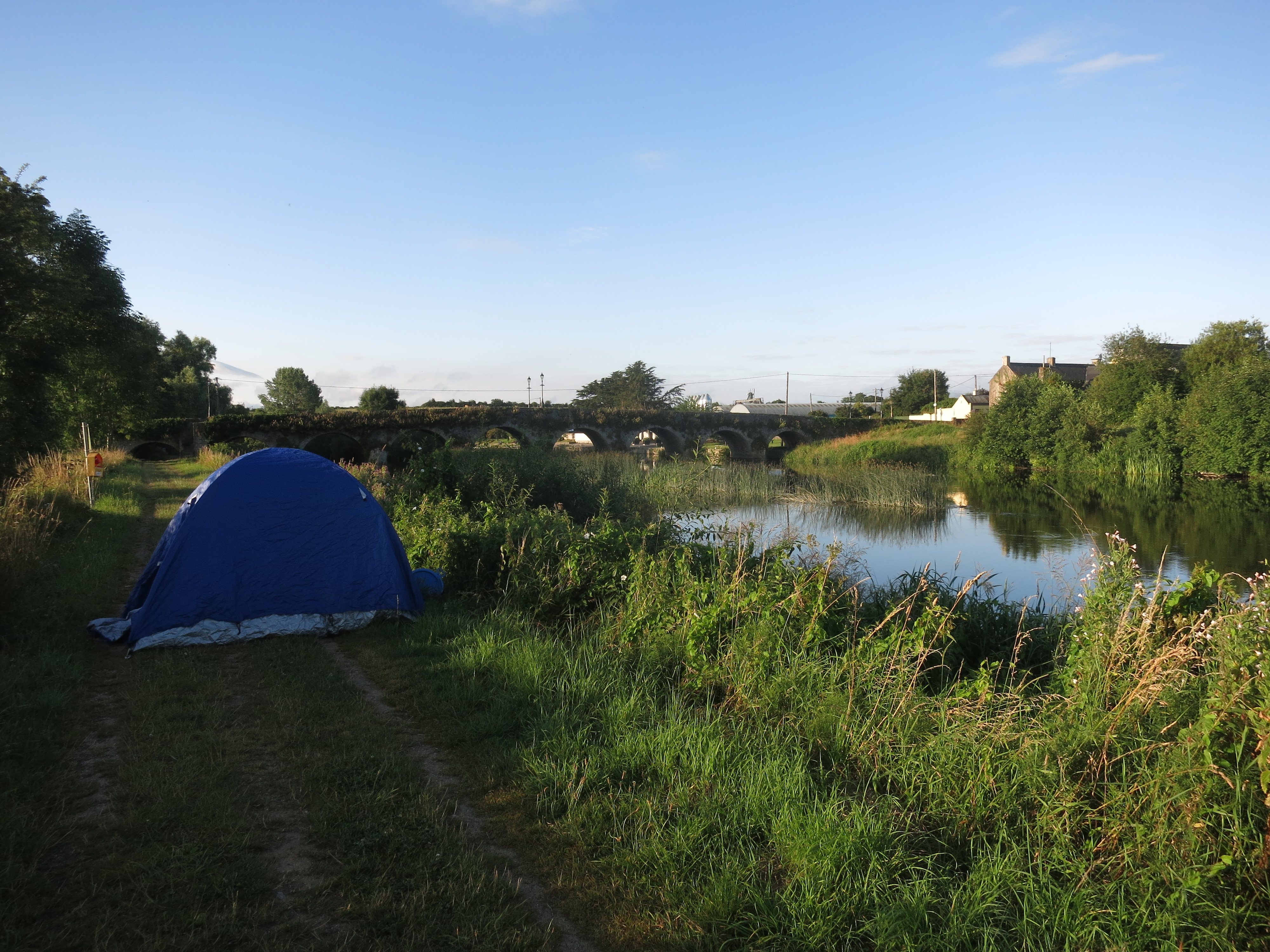
My love of language is certainly being nourished in Ireland, with varied – and thick! - accents, humorous wordings and unique turns of phrase. Asked if the water was warm, an old fella bathing in the river said 'I'd call it lukewarm. Sure, I've washed the Delft [a common type of China] in colder water!'; the barlady in the pub, asking someone about sleeping out on a trip down the river once asked 'Did the dew not fall on you?'.
After our fish and chips we headed back out, set up the tent in the dark by the river and fell deeply asleep. Next morning, clear and warm, we headed off, the country becoming wooded, forest all around, and hillier. While the farmland had been pretty, this country was absolutely beautiful. I had expected to be travelling mostly through farmland and open country, past small villages and the odd bigger town; my conception of Ireland didn't include such large, beautiful, dense forest, so it was a lovely surprise to find ourselves paddling for hour after hour through such beautiful country!
We travelled a few hours through this, then stopped at a large weir for a swim when the bloke from the canoe company turned up. They get most of their business from doing day trips on that stretch and he'd told us he'd be there late morning, so we joined him and his customers for a few hours, shooting, as opposed to sliding down, the weir a few times, then going down some small rapids. During the whole trip there were frequent opportunities to whizz along very minor rapids, a rare treat for me, accustomed to the Gorge's rocky crossings where, if there's water enough, you're as likely to put a hole in your canoe as get through unscathed! Here, however, the rapids were a bit harder and, feeling confident we went down, misjudged a submerged rock, came abreast upon it, and down the canoe went and away went the bags! After the usual panicked moments the canoe and the bags remaining were recovered, as were the loose bags by Kevin, the bloke from the canoe hire company and half an hour later we were at the lock landing checking everything for waterproofness, drying ourselves out and generally re-gathering. We left our bags and went back up via the lock and down the weir and the rapids, this time without incident!
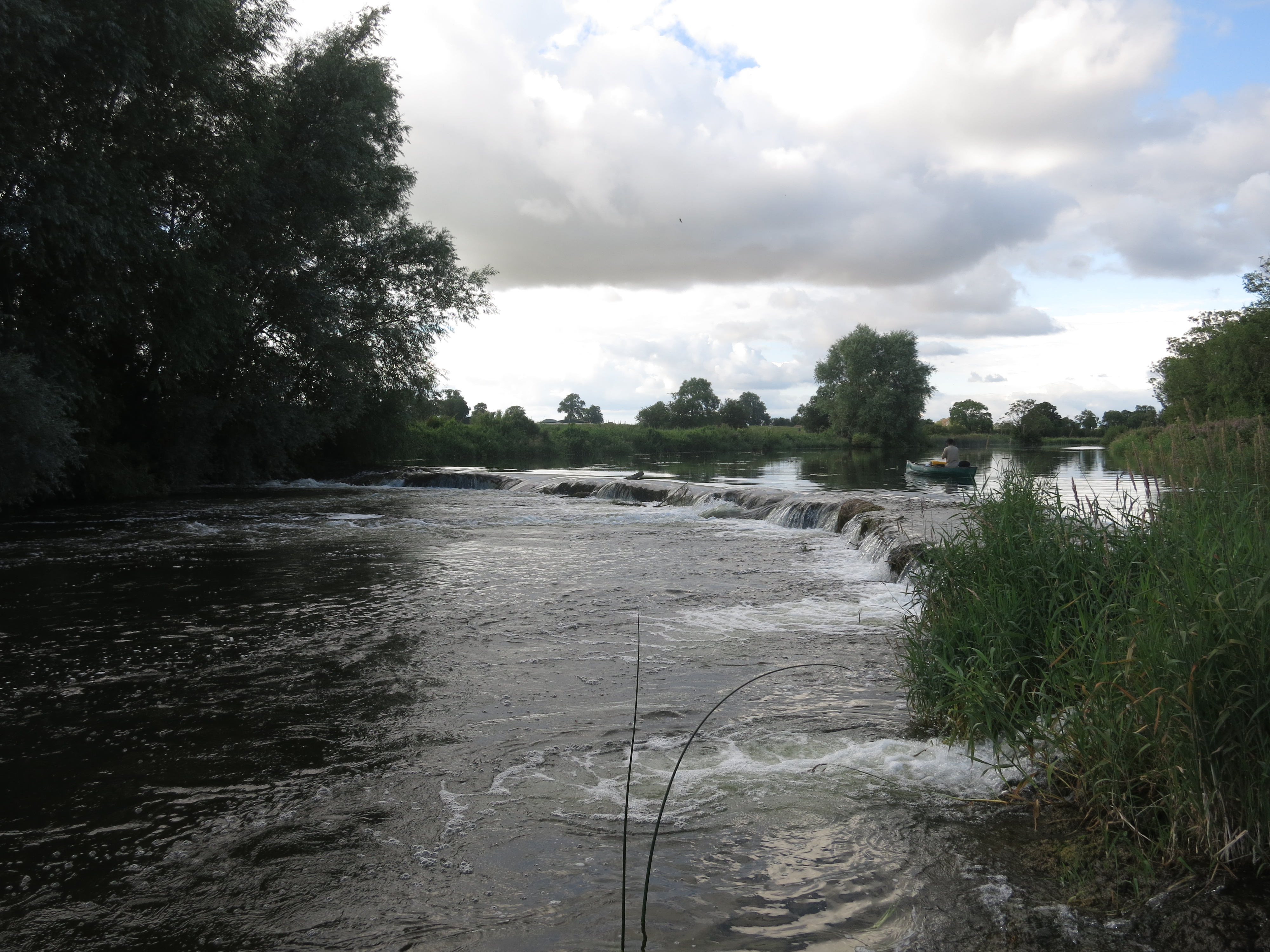
We spent another few hours paddling through forest, eventually reaching the lovely town of Graiguenamanagh mid-afternoon and had a 'breakfast' of roast ham, mashed potatoes, cabbage and carrots, then a long doze in the shade of a tree overlooking the river. The town was set on the river, which there was wide, and moored along it were dozens of barges. All along the river we'd seen barges and it seems a fair number of people live on them, while others spend holidays aboard. Ireland, as well as having rivers made navigable by weirs and locks, also has a number of canals connecting river systems, most notably the Grand Canal and the Royal Canal, so that one can travel by barge from the Irish Sea in the south-west, along the River Barrow, right up to Northern Ireland or across to the Atlantic Ocean via the Shannon River.
The town of Graiguenamanagh seems to be a particularly popular place for barges to congregate, possibly because it's the first place upriver from the tidal zone, below the last lock just downriver. Whatever the reason, it was a very pleasant place, with kids jumping off diving boards into the river, people hanging around the banks talking and swimming and barge travellers sitting on deck watching it all.
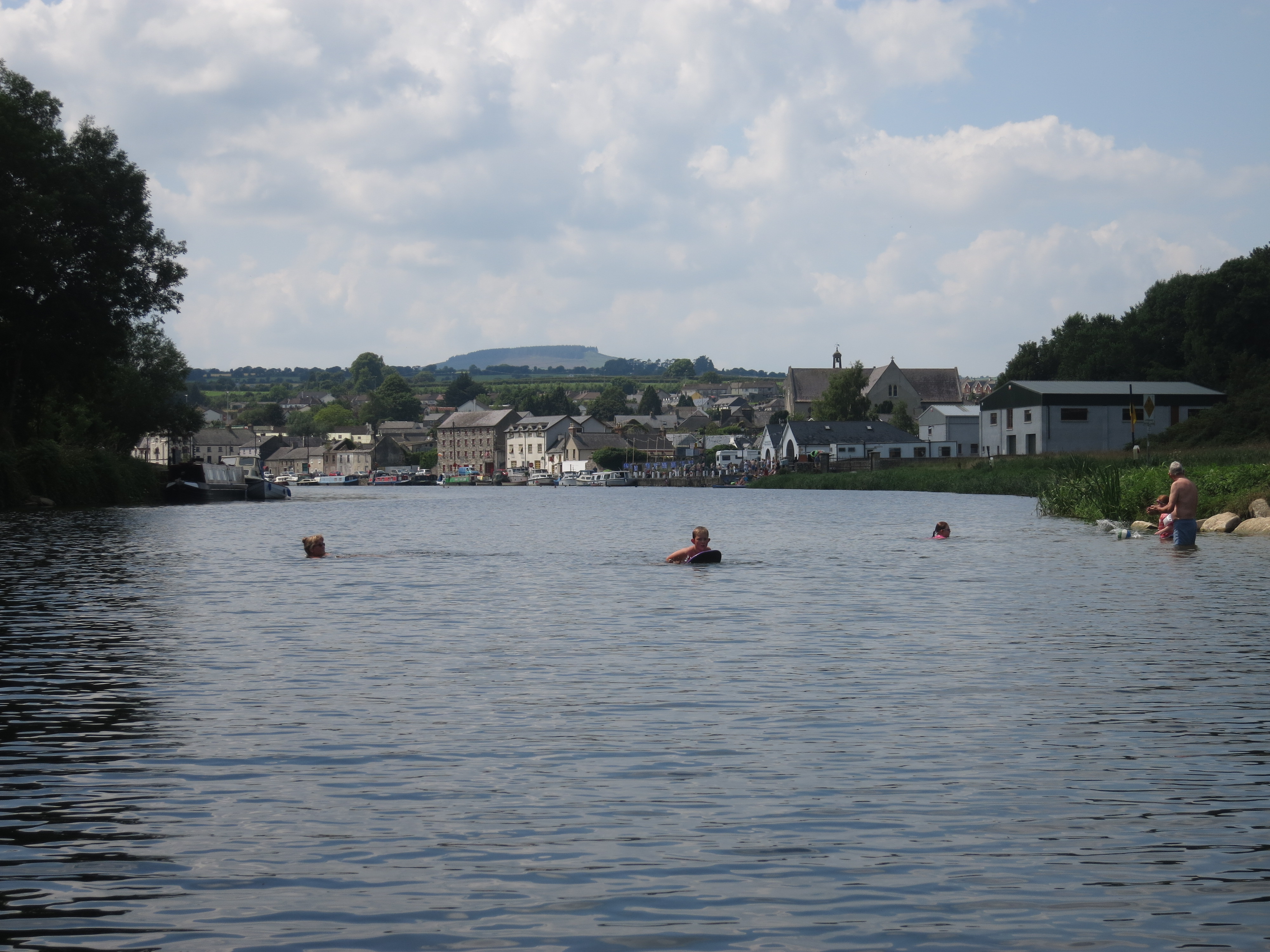
That night we camped in a quiet spot just upriver from the last lock at St Mullin's and headed off next morning down the last weir to the tidal zone and paddled steadily for four hours to New Ross, near the coast, to drop off the canoe.
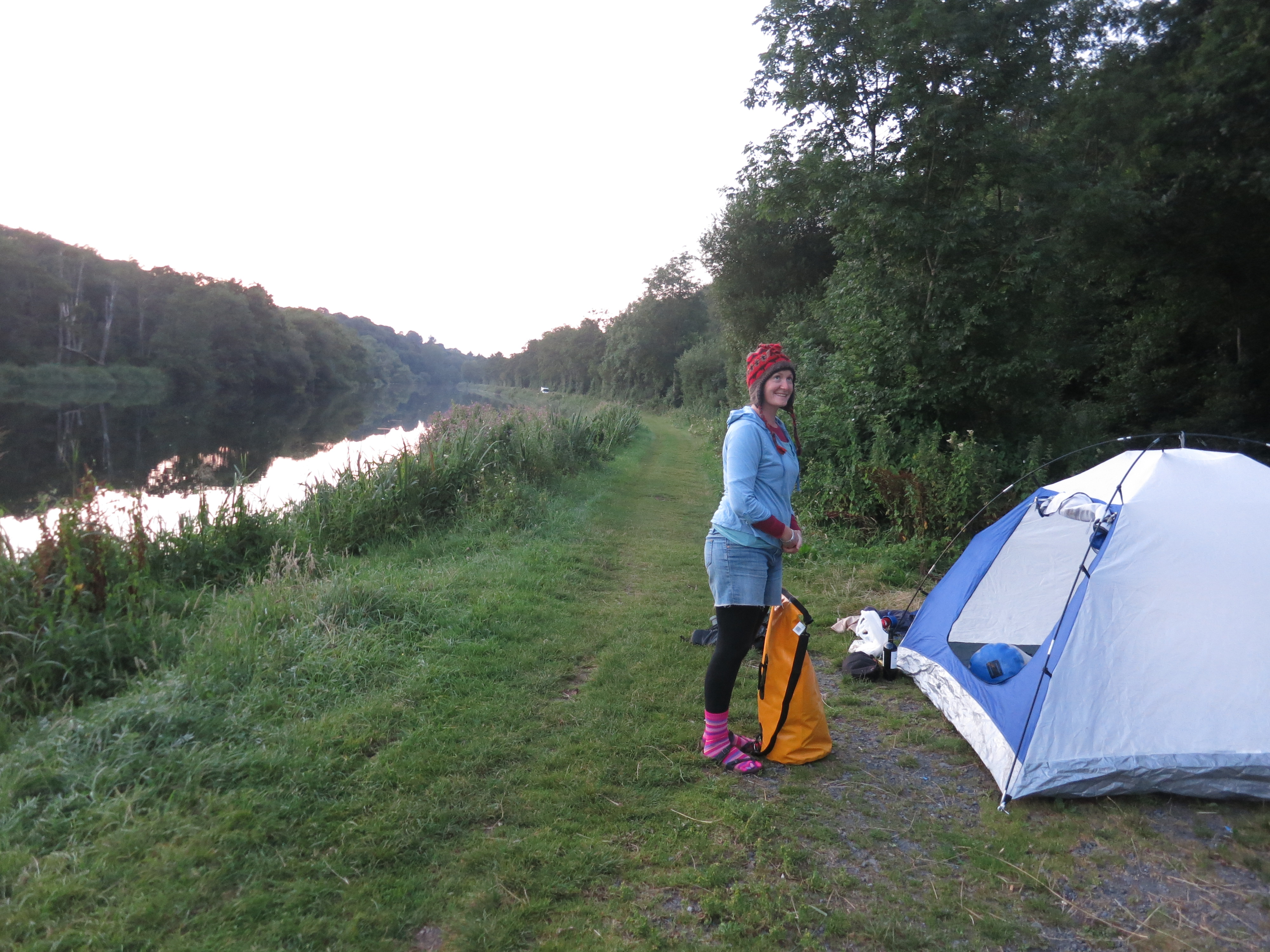
We were travelling with the ebb tide, but had left it a little late, so didn't get much help from the tide, and spent the last half hour, where the river was wide and strong, battling against the wind and the newly turned tide.
The country here was still pretty but, being tidal, the banks were muddy and, as we got closer to the large town of New Ross, the country opened up to farmland then urban, so the scenery became steadily less pretty – but still nothing like ugly!
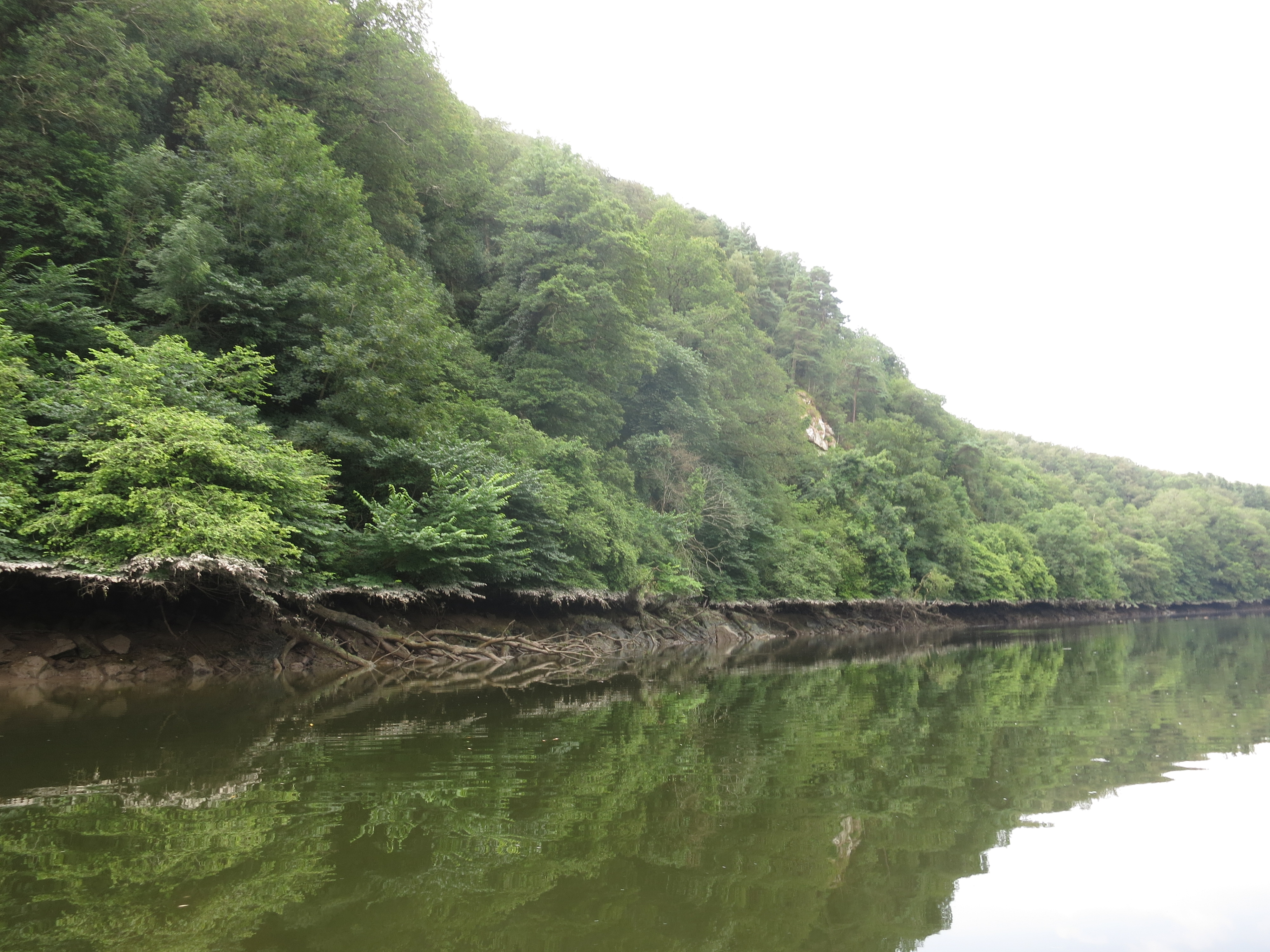
We met Kevin from the canoe hire company in the centre of town an hour late, had some sandwiches and a Guinness at a local pub then thumbed our way across to near Gorey on the Wexford west coast to visit a friend of Niamh's.
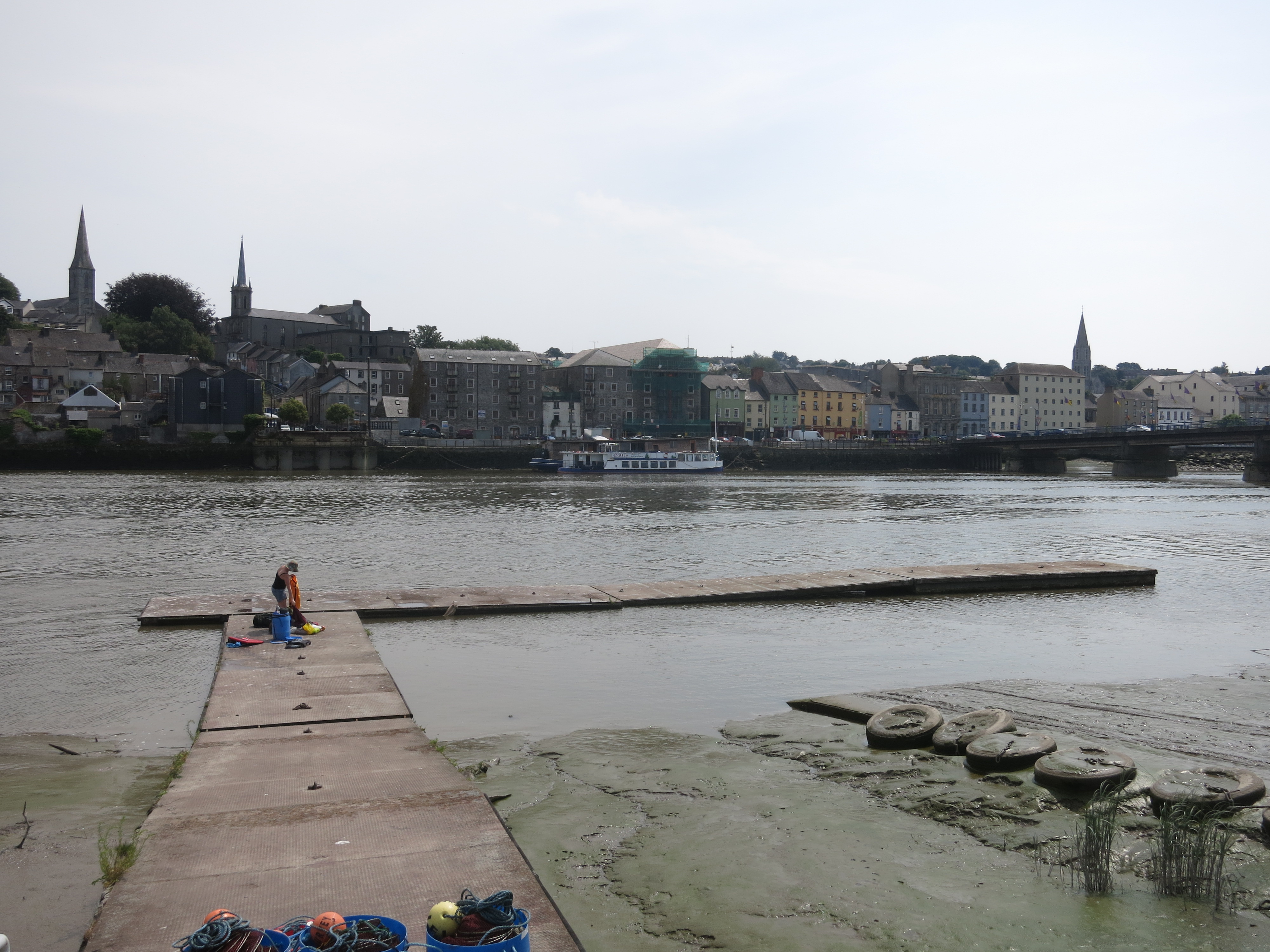
The next day we went to Donegal – but that's another story!
Some more photos from the trip.
